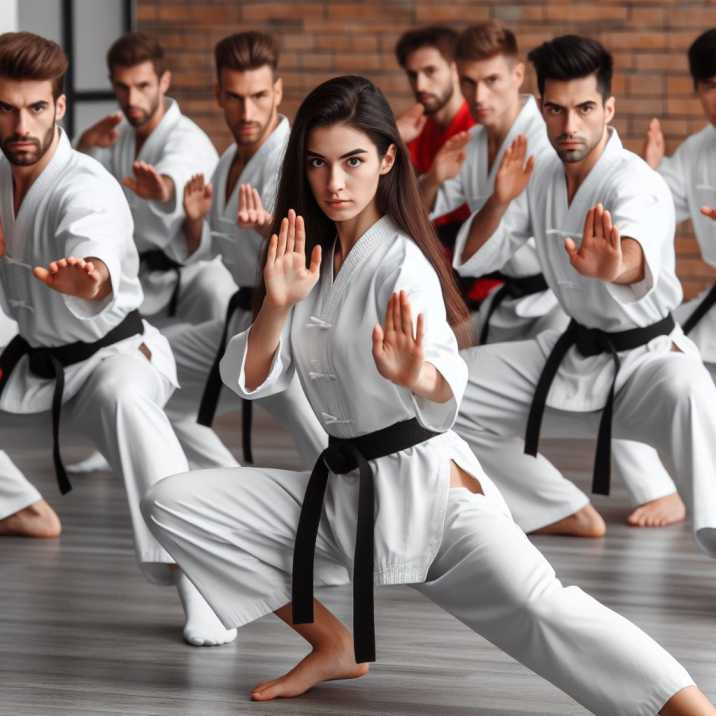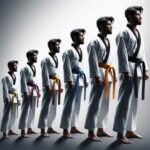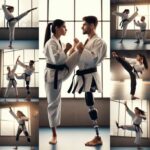Introduction
Table of Contents
In the realm of martial arts, few disciplines carry the same mystique and allure as Kung Fu. Originating from China and encompassing a wide array of styles and techniques, Kung Fu is renowned for its fluid movements, precision strikes, and philosophical underpinnings. But amidst its cultural significance and cinematic glamour, a pertinent question persists: Is Kung Fu effective for self-defense?

Exploring the Essence of Kung Fu
Before delving into its practical applications, it’s essential to understand the essence of Kung Fu. Contrary to popular belief, Kung Fu is not merely about physical combat; it’s a holistic system that encompasses physical, mental, and spiritual aspects. Rooted in ancient Chinese philosophy, Kung Fu emphasizes discipline, focus, and harmony with one’s surroundings.
Unveiling the Practicality of Kung Fu effective for self-defense
Enhanced Reflexes and Awareness
Kung Fu training hones your reflexes and heightens your situational awareness. Through rigorous practice, practitioners develop the ability to anticipate and react swiftly to potential threats, a crucial skill in self-defense scenarios.
Versatility in Combat Techniques
One of the defining characteristics of Kung Fu is its versatility. Unlike some martial arts that focus on specific techniques, Kung Fu encompasses a diverse range of strikes, blocks, grappling, and evasion tactics. This versatility equips practitioners with a comprehensive toolkit for various self-defense situations.
Efficient Use of Energy
Central to Kung Fu philosophy is the concept of efficiency in movement and energy expenditure. By harnessing body mechanics and leverage, Kung Fu practitioners learn to generate maximum force with minimal effort, enabling them to defend themselves effectively while conserving energy.
Mental Fortitude and Composure
Self-defense encounters can be intense and high-pressure situations. Kung Fu training instills mental fortitude, teaching practitioners to remain calm and composed even in the face of adversity. This mental resilience is invaluable for making split-second decisions and executing techniques with precision.
Adaptability to Real-Life Scenarios
While traditional Kung Fu forms may seem stylized, they contain practical applications for real-life self-defense. Through partner drills, sparring, and scenario-based training, practitioners learn to adapt Kung Fu techniques to dynamic and unpredictable situations, ensuring their efficacy in practical contexts.
The Role of Discipline and Ethics
Beyond physical prowess, Kung Fu instills values of discipline, respect, and integrity. Practitioners are taught to use their skills responsibly and avoid confrontations whenever possible. The ethical principles ingrained in Kung Fu serve as a moral compass, guiding practitioners to prioritize peaceful resolutions over violence.
Conclusion
In conclusion, Kung Fu effective for self-defense, offering a holistic approach that encompasses physical, mental, and ethical dimensions. Its emphasis on versatility, efficiency, and adaptability equips practitioners with the skills and mindset needed to protect themselves in real-life situations while promoting personal growth and self-discipline.
FAQs (Frequently Asked Questions)
1. Is Kung Fu effective against multiple attackers?
Yes, Kung Fu training emphasizes situational awareness and efficient use of energy, enabling practitioners to defend themselves against multiple assailants effectively.
2. Can anyone learn Kung Fu for self-defense?
Yes, Kung Fu is suitable for individuals of all ages and fitness levels. With proper instruction and dedication, anyone can learn and benefit from Kung Fu training.
3. How long does it take to become proficient in Kung Fu for self-defense?
The timeframe varies depending on individual aptitude and commitment to training. However, consistent practice over several years is typically required to attain proficiency in Kung Fu self-defense techniques.
4. Are there different styles of Kung Fu, and do the Kung Fu effective for self-defense?
Yes, there are numerous styles of Kung Fu, each with its own unique techniques and philosophy. While effectiveness may vary between styles, the principles of efficiency, adaptability, and mental fortitude are fundamental to all.
5. Can Kung Fu be used as a form of exercise besides self-defense?
Absolutely, Kung Fu provides a comprehensive workout that improves flexibility, strength, endurance, and overall fitness levels, making it an excellent form of exercise even for those not primarily interested in self-defense.


